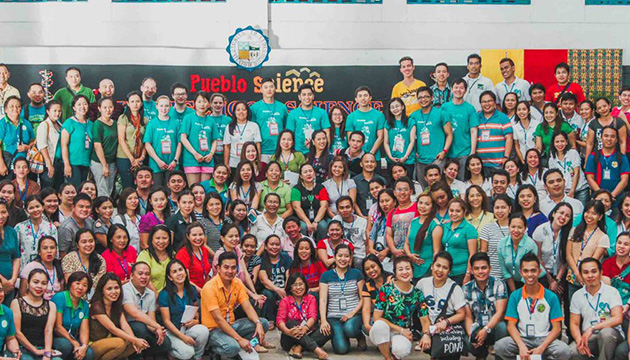June 1, 2023 - To understand a part of the traditional Filipino psyche is to grasp the significance of hiya. The Tagalog word literally means “shame”.
Hiya is a deeply-held value that prevents many from breaking social conventions or asking too many probing questions.
To be called walang hiya, or shameless, is a severe condemnation, resulting in the loss of face and honour.
But like a lot of slurs, walang hiya is being embraced by Filipinos who refuse to be bound by established traditions.
As Justinne Ramirez notes, it is “encouraging to see more folks use the term with a sense of pride and playfulness”.
“Walang hiya is usually used in an offensive manner, and many people globally have been reclaiming it as we continue to shed the shame of not fitting into specific standards deemed acceptable and useful to a society steeped in White supremacy, capitalism, patriarchy and all of the oppression that stem from them,” Ramirez states in a written interview.
Ramirez was born in Metro Manila, and settled in the diverse B.C. city of Richmond in 2001.
She is speaking for herself and her collaborators, April Alayon and Rina Garcia Chua. The three are organizing a poetry night at the Massy Arts Gallery in Vancouver (23 East Pender Street) from 6 p.m. to 8 p.m. on June 15.
As one might expect, the event is dubbed Walang Hiya, and it’s meant to celebrate so-called “Pinxy/Pinay” poets.
“Pinxy and Pinay are somewhat decolonial terms of Filipinx and Filipina because these are terms that originated in the Philippines,” Ramirez explains.
“Historically, Filipino is a colonial term that used to refer solely to Spaniards born in the Philippines, which is also a colonial concept. Gender binaries were also introduced to our people as part of colonization.
“There have been ongoing discussions—across the diaspora, the homelands, and everyone else in between—about the term Filipinx, which is a term created following the leadership of Latinx folks. However, for this event, we are using Pinxy to be inclusive of folks who identify outside of the imposed gender binary, which usually refers to being either a man or woman, or are non-binary, or are gender non-conforming,” Ramirez says.
Ramirez is a communications specialist, and has been writing poetry since she was young.
Alayon is a digital designer originally from the Philippine province of Bulacan, and uses pronouns “they” and “them”.
Chua is a current Jack and Doris Shadbolt Fellow at SFU, and her interests include poetry and issues about migration and the environment.
The event is supported by SFU’s Jack and Doris Shadbolt Fellowship in the Humanities Program, as well as the Massy Arts Society.
“There are so many amazing poetry events in Metro Vancouver, and we want to add our voices,” Ramirez said.
“We need to witness more poetry performances by our kapatid [literal English translation is “sibling” and in this context, means the more general term “ally”] in the various languages that hail from the Philippines.”
Ramirez notes that performing poetry out loud is an “intimate, powerful act of resistance as it invites listeners to be present, to feel, to be seen”.
“It also allows us to practice our oral storytelling traditions. Many people channel their creativity through poetry, and may feel restricted by the confines of what is acceptable. The audience is there to snap their fingers as poets spit fire shamelessly, yet ultimately, the stage is also for poets to reclaim their space, validate themselves, and show up for themselves.
“As Pinxy/Pinay folks who are here as settler immigrants, migrants, and refugees, we are in solidarity with Indigenous folks in resisting against White supremacy, capitalism, and colonization. This poetry night is intended to keep our hopes up, and to be with the community despite the destruction around us.”
Ramirez wants Pinxy/Pinay poets to have “no shame”.
“We are here to celebrate and encourage our existence and creativity, shamelessly.”
“Walang Hiya” takes place from 6 p.m. to 8 p.m. on June 15 at the Massy Arts Gallery in Vancouver (23 East Pender Street).












